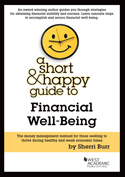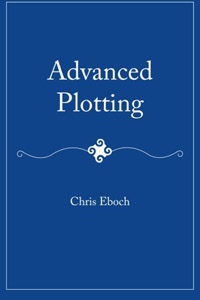by Sherri Burr
Recently, I read T.D. Jakes’ book Instinct and was startled by the chapter on juggling priorities. The author discussed juggling as “giving each object just enough of a push so that all items remain suspended and none falls out of sequence.” I thought of my efforts to make time for my writing life while working full time, attending to family obligations, volunteering to help others, practicing a healthy lifestyle, and looking after my home. In short, like the readers of this column, I have a lot of balls in the air.
As writers, we type stories, edit material, shepherd work through the publishing process, market and promote the work. Depending on how many projects writers have on their desks, they could be juggling all of these. Each takes time, and yet are required to manage a successful writing career.
Writers need sustained work time. Scheduling thirty, sixty, or ninety-minute blocks to put words on paper can be helpful. If I get on a roll, I hit the timer to add another block. When I have a passion project, I can’t wait to read and write about my subject.
So how does one decide to accept other opportunities that take time away from writing and other necessary priorities related to family, work, and home? Do you say “Yes” and add another item to juggle? How do you know when your schedule has reached its saturation point?
I know I have reached schedule saturation when even the thought of taking on another commitment causes stress. Ultimately we have to say “No” to people when a “Yes” could bring all the balls crashing down.
Adding one more meeting means less time to write, and the occasion divides the day. This can lead to missed deadlines and the inability to do any work at all because of the feeling of being overwhelmed.
Within two months this year, I received four offers to join not-for-profit boards. One group met twice a month and that was a non-starter. As I contemplated another offer from a board that met once a month, I looked at my calendar and noticed that their board meeting date conflicted with a previous obligation. Even though the group offered to move the time of their meeting, I just couldn’t see how I could add another monthly commitment to my calendar. For a third board, the executive director said they met bi-monthly and communicated by email in between. That felt worse as I often struggle to read all the email that currently descends into my box. One recruiter mentioned the seriousness of the board work. As the guardian of a brother in a coma, I already make solemn decisions. Just the mere mention of the word ‘serious’ made me want to run.
I finally decided to decline all four board offers until I finished other volunteer projects or freed up time from my university job.
I believe there has to be a good reason to nod an acceptance.
I recommend writers consider saying “Yes” to those offers that bring joy, pleasure, and peace into your life. Writers must intersperse fun activities between obligations. Fun activities and passion projects feed your soul. They make life pleasurable so you can endure the serious and take delight from the prestigious.
For example, after taking several sets of golf lessons, I finally play with enough confidence to make it enjoyable. Fortunately in New Mexico many golf courses substantially discount their fees to encourage late afternoon play. With over 300 sunny days a year, I have become enthralled by the mountain views and gorgeous New Mexico skies. If given a choice between attending additional meetings and playing golf several times a week, guess which one I’ll choose.
At the end of each day, I review what I did that was gratifying. Did I type pages for my next book? Did I help someone? Did I golf in a nice surrounding? Did I see a comedy movie or watch a fascinating television show like How to Get Away with Murder?
There are things that we have to do, and then there are those we want to do. A balanced life requires juggling between both sets of undertakings. So off I go. Today’s writing is done and nine holes are calling my name.
 Sherri Burr is the Regents’ Professor of Law at the University of New Mexico School of Law where she teaches Entertainment Law, Intellectual Property Law, and Art Law. A graduate of Mount Holyoke College, Princeton University, and the Yale Law School, she has authored or co-authored 20 books, including A Short and Happy Guide to Financial Well-Being (West Academic, 2014). Sherri is also a long-time member of SouthWest Writers and a regular contributor to the organization’s newsletter SouthWest Sage.
Sherri Burr is the Regents’ Professor of Law at the University of New Mexico School of Law where she teaches Entertainment Law, Intellectual Property Law, and Art Law. A graduate of Mount Holyoke College, Princeton University, and the Yale Law School, she has authored or co-authored 20 books, including A Short and Happy Guide to Financial Well-Being (West Academic, 2014). Sherri is also a long-time member of SouthWest Writers and a regular contributor to the organization’s newsletter SouthWest Sage.
This article was originally published in the December 2014 issue of SouthWest Sage and is reprinted here by permission of the author.




